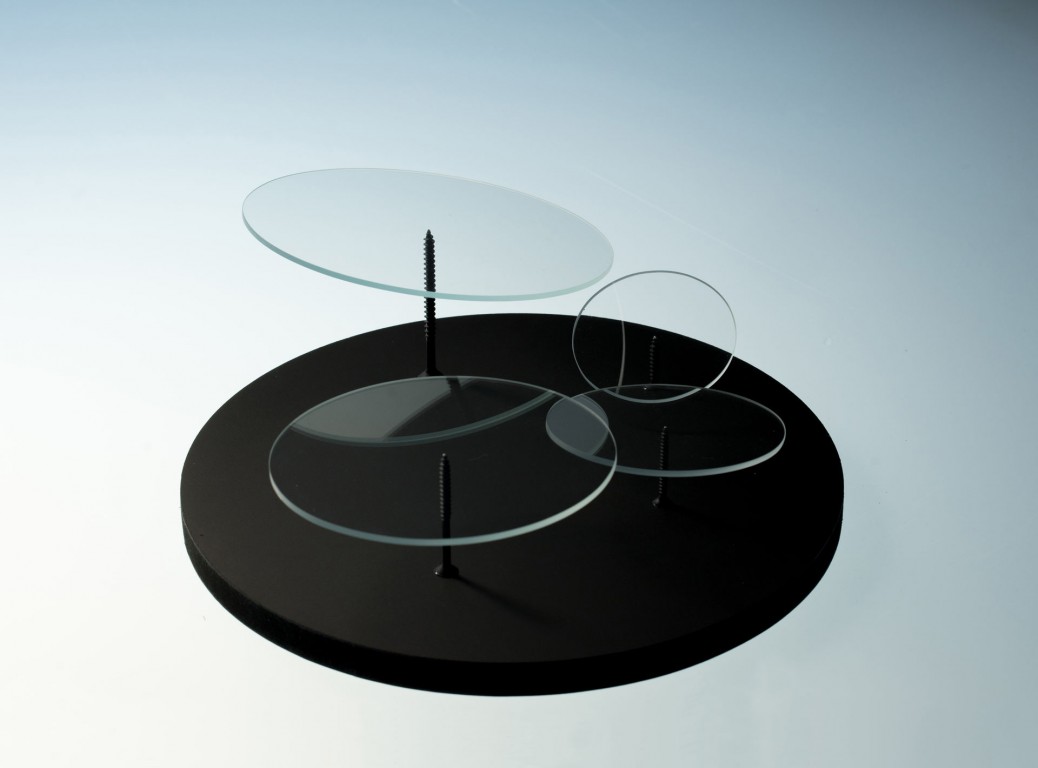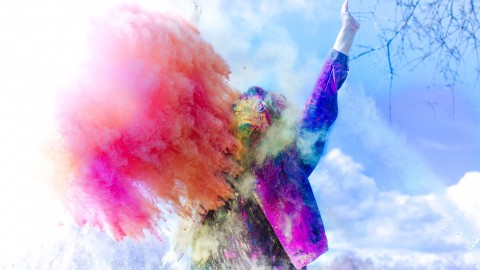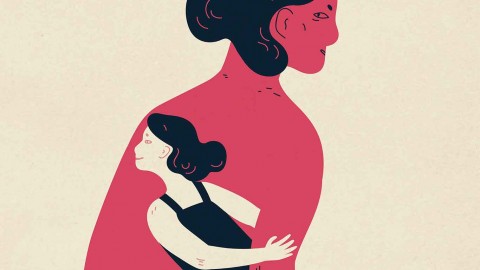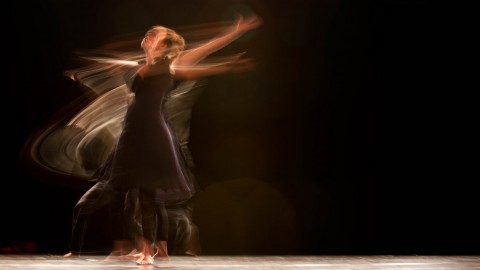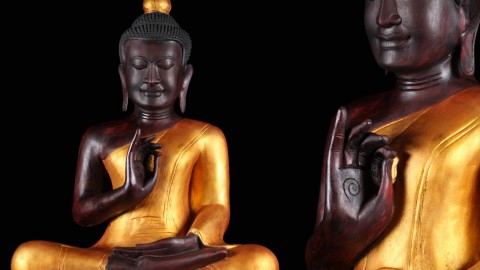Not that sins will be punished in the future, sins are the punishment. Intrinsic punishment is there: you steal and you are punished. In the very stealing you are punished – because you are more imprisoned: you will become more afraid; you will not be able to face the world; continuously, you will feel some guilt, you have done something wrong, any moment you can be caught. You are already caught! Maybe nobody ever catches you and no court punishes you – and there is no other heavenly court anywhere – but you are caught. You are caught by yourself. How will you forget it? How will you forgive yourself? How will you undo the thing that you have done? It will linger and linger. It will follow you like a shadow; it will haunt you like a ghost. It itself is the punishment.
Character hinders you from committing wrong things, but it cannot hinder you from thinking them. But to steal or to think about it is the same. To commit a murder really and just to think about it is the same, because as far as your consciousness is concerned you have committed it if you have thought about it.
It never became action because the character hindered you; if the character was not there it would have become action. So in fact character, at the most, does this: it hinders the thought; it doesn’t allow it to be transformed into action.
It is good for society, but nothing good for you. It protects the society; your character protects the society. Your character protects others, that’s all. That’s why every society insists on character, morality, this and that; but it does not protect you.
You can be protected only in awareness. And how to gain awareness? There is no other way except to live life in its totality. “… for the purpose of providing experience and thus liberation to the seer.”
“The seen; which is composed of the elements and the sense organs, is of the nature of…” three gunas. Yoga believes in three gunas: sattva, rajas, tamas. Sattva is the quality which makes things stable; rajas is the quality which gives action; and tamas is the quality which is inertia. These three are the basic qualities.
Through these three this whole world exists. This is the yoga trinity.
Now physicists are ready to agree with yoga. They have split the atom and they have come across three things: electrons, neutrons, protons. Those three are of the same three qualities: one is of the quality of light – sattva – stability; another is of the quality of rajas – activity, energy, force; and the third is of the quality of inertia – tamas. The whole world consists of these three gunas; and through these three Gunas, a man of awareness has to pass. He has to experience all these three gunas. And if you experience them as a harmony, which is the real discipline of yoga….
Everybody experiences: sometimes you feel lazy, sometimes you feel so full of energy; sometimes you feel so good and light, and sometimes you feel so evil and bad; sometimes you are a darkness, and sometimes you are a dawn. You feel all these gunas. Many moments of them come continuously, you move in a wheel, but they are not in proportion. A man of lethargy is ninety percent lethargy. He is active also – he has to be because just to keep on living a life of lethargy he will have to act a little. That’s all his activity is – just to support his inertia. And he has to be a little good to people also; otherwise people will be very, very bad to him. People will not tolerate his inertia.
Have you watched? People who are not very active…. For example, very fat people are always smiling. That is their protection. They know they cannot fight.
They know that if the fight happens they cannot escape, they cannot “flight.” You always see very fat people smiling, happy. What is the reason? Why do thin people look sad and why do fat people never look so sad, always happy?
Psychologists and physiologists say that is their protection, because in the struggle of life it will be very difficult for them to be always in a fighting mood, as lean and thin people always are. They can fight – if the other person is weak they will beat him; if the other person is strong they will escape. They can do both, and the fat person cannot do either – he goes on smiling; he goes on being good to everybody. That’s his protection so others should be good to him.
Lazy people are always good. They have never committed any bad thing because even to commit a sin one needs to be a little active. You cannot make a lazy person a Hitler, impossible. You cannot make a lazy person, Napoleon or Alexander, impossible. Lazy persons have not committed any great sin; they cannot. They are, in a way, good people because even to commit a sin or to do something bad they will have to be active – that’s not for them.
Then there are active people, unbalanced; they are always on the go. They are not worried in any way where to reach; they are only worried how to go with speed.
They don’t bother about whether they are leaching anywhere – that is not the point at all. If they are moving with speed everything is okay. Don’t ask, “Where are you going?” They are not going anywhere; they are simply going. They have no destiny. They have only energy to be active. These people are the dangerous people in the world, more dangerous than the lazy people. Out of this second category come all Adolf Hitlers, Mussolinis, Napoleons, Alexanders. All mischief-mongers come from the second category because they have energy, a disproportionate energy.
Then there is a third kind of people, which is rare to find: somewhere a Lao Tzu just sitting silently – not lazy, passive. Not active, not lazy – passive: full of energy, a reservoir, but sitting silently. Have you watched somebody sitting silently, full of energy? You feel a field around him, radiant with life, but still – not doing anything, just being.
And yoga is to find the equilibrium between these three. If you can find a balance between these three, suddenly you transcend. If one is more than the others then that one becomes your problem. If you are more lazy than active then laziness will be your problem: you will suffer through it. If activity is more than laziness then you will suffer from your activity. And the third is never more, it is always less; but even if that is theoretically possible – that somebody is too good – that too will be a suffering for him, that too will create imbalance. A right life is a life of balance.
Buddha has eight principles for his disciples. Before every principle he adds a word, sama. If he says, “Be aware,” he not only says “smriti,” he says “samyak smriti.” In English they have always been translating it as “right memory.” If he says, “Be active,” he always says, “Be rightly active.” By “rightly” he means be in an equilibrium. The Indian term samyak means equilibrium. Even for samadhi, even for meditation, Buddha says “samyak samadhi.” Even samadhi can be too much, and then it will be dangerous. Even good can be too much, and then it will be dangerous.
Equilibrium should be the key factor. Whatsoever you do, always be balanced like a man walking on a tightrope, continuously balancing. That is the rightness: the factor of balance. The man who wants to attain the ultimate marriage, ultimate yoga, has to be in a deep balance. In balance you transcend all the three gunas. You become gunateet: you go beyond all these three attributes. You are no longer part of the world; you have gone beyond.
Tags: Patanjali Yoga Sutra 21 Equilibrium
